- Why Us?
- Features
White Label
For SaaS Platforms & Agencies
Provide our complete analytics suite to your clients, directly within your own interface and with your/their own branding. Discover Analytics-as-a-Service and White Label Analytics. Great benefit, minimal effort.
- Pricing
- White Label
- Success Stories
- Partner
- ResourcesExpand Your Knowledge
CONTENTS
- Understand GDPR Compliance for Survey Platforms
- 1. TWIPLA
- Security and Compliance
- 2. SurveyMonkey
- Security and Compliance
- 3. Survicate
- Security and Compliance
- 4. SurveyLegend
- Security and Compliance
- 5. Pointerpro
- Security and Compliance
- 6. SurveySparrow
- Security and Compliance
- 7. Startquestion
- Security and Compliance
- 8. Survio
- Security and Compliance
- 9. SoGoSurvey
- Security and Compliance
- 10. Zonka Feedback
- Security and Compliance
10 Top GDPR Compliant Survey Platforms
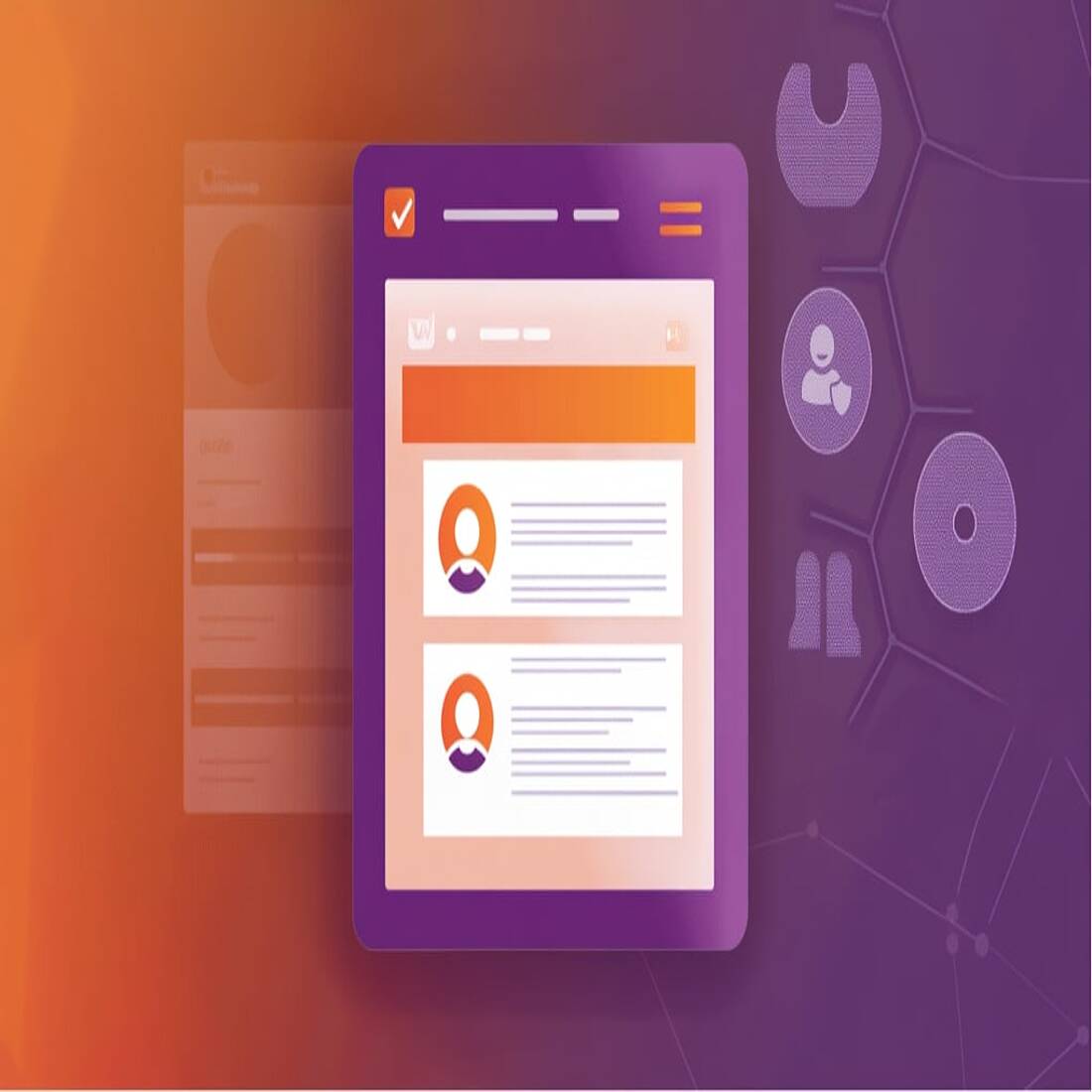
Surveys are an essential tool for gathering insights, but ensuring they comply with privacy laws like GDPR is crucial.
Choosing a GDPR survey platform means more than just convenience - it protects your business and builds trust with respondents.
This guide introduces 10 GDPR survey platform options that prioritize compliance while delivering robust features. Not all survey tools are created equal, and using non-compliant platforms could jeopardize your data privacy efforts.
Let’s explore the best platforms to keep your surveys both effective and compliant.
Understand GDPR Compliance for Survey Platforms
When collecting customer data through surveys, GDPR compliance is essential to ensure privacy and protect respondents' rights.
The General Data Protection Regulation (GDPR) establishes strict guidelines for handling personal data, including transparency, consent, and secure processing.
Businesses collecting survey data must act as data controllers, determining how and why data is processed, while survey platforms act as data processors, responsible for processing data on behalf of the controllers.
To ensure GDPR compliance and avoid penalties, survey platforms must:
Provide customizable consent forms to gather explicit permission from respondents.
Ensure data security through encryption (e.g., AES-256) and storage in ISO 27001-certified servers.
Offer tools for data access, rectification, deletion, and portability to honor respondents' rights.
Sign data processing agreements (DPAs) with businesses to outline data use responsibilities.
Additionally, businesses should seek platforms that do not share collected data with third parties, such as advertisers, and grant exclusive data ownership to users.
While it's always wise to put staff on regular GDPR training courses, selecting a GDPR survey platform that meets these criteria will enable businesses to collect insights responsibly, comply with global privacy laws, and maintain user trust.

1. TWIPLA
TWIPLA is a website intelligence platform designed with privacy at its core. It features secure surveys and polls to gather direct feedback responsibly, alongside web statistics, eCommerce analytics, visitor behavior features, and custom dashboards - providing businesses with everything they need to guide online success while maintaining user trust.
Explore TWIPLA's GDPR-Compliant Features
Free Trial: 30 days, unlimited surveys and polls.
Free Forever Plan: Yes.
Pricing: Three paid plans starting from $2.39 per month, and a custom enterprise option.
Security and Compliance
TWIPLA ensures businesses remain secure and compliant while analyzing website data. Fully GDPR compliant, it uses cookieless tracking and data anonymization to protect personal information.
Data is securely stored in ISO 27001-certified servers in Germany, while its Privacy Center helps businesses align with regulations like GDPR, CCPA, and ePrivacy, ensuring insights are gained responsibly.

2. SurveyMonkey
SurveyMonkey is a widely recognized platform for creating GDPR-compliant surveys and polls, offering businesses an easy and secure way to gather valuable feedback.
With features like advanced survey logic, customizable templates, analytics dashboards, and integration options, SurveyMonkey ensures user data is handled responsibly while delivering insights to drive informed decisions.
Free Trial: No.
Free Forever Plan: Yes, includes unlimited surveys with up to 10 questions each and 25 responses per survey.
Pricing: Paid plans start at $39/month (billed annually) or $99/month for a monthly plan.
SurveyMonkey from the view of a data analyst
- Miracle, Data Analyist in Ireland, Capterra reviewPros: I love how easy it was to build surveys. As a Data Analyst every day I have to make many surveys and if can be a quite tedious task but Survey Monkey speads up the process and makes it more enjoyable. This is because I can add customizable questions.
Cons: What I didn't like was the pricing. Other alternatives that I know of are free e.g. Google Forms it felt a bit annoying to have to pay for features etc but it's worth the money. But having Google Forms as a free alternative is definitely tempting to switch to.
Security and Compliance
SurveyMonkey is a trusted platform for creating and managing surveys with a focus on data security and compliance. Fully GDPR-compliant, it protects respondent data through robust encryption and ensures businesses meet global data privacy regulations.
With features like customizable consent forms and secure data handling, this GDPR survey platform enables organizations to collect feedback while maintaining trust and adhering to compliance standards.
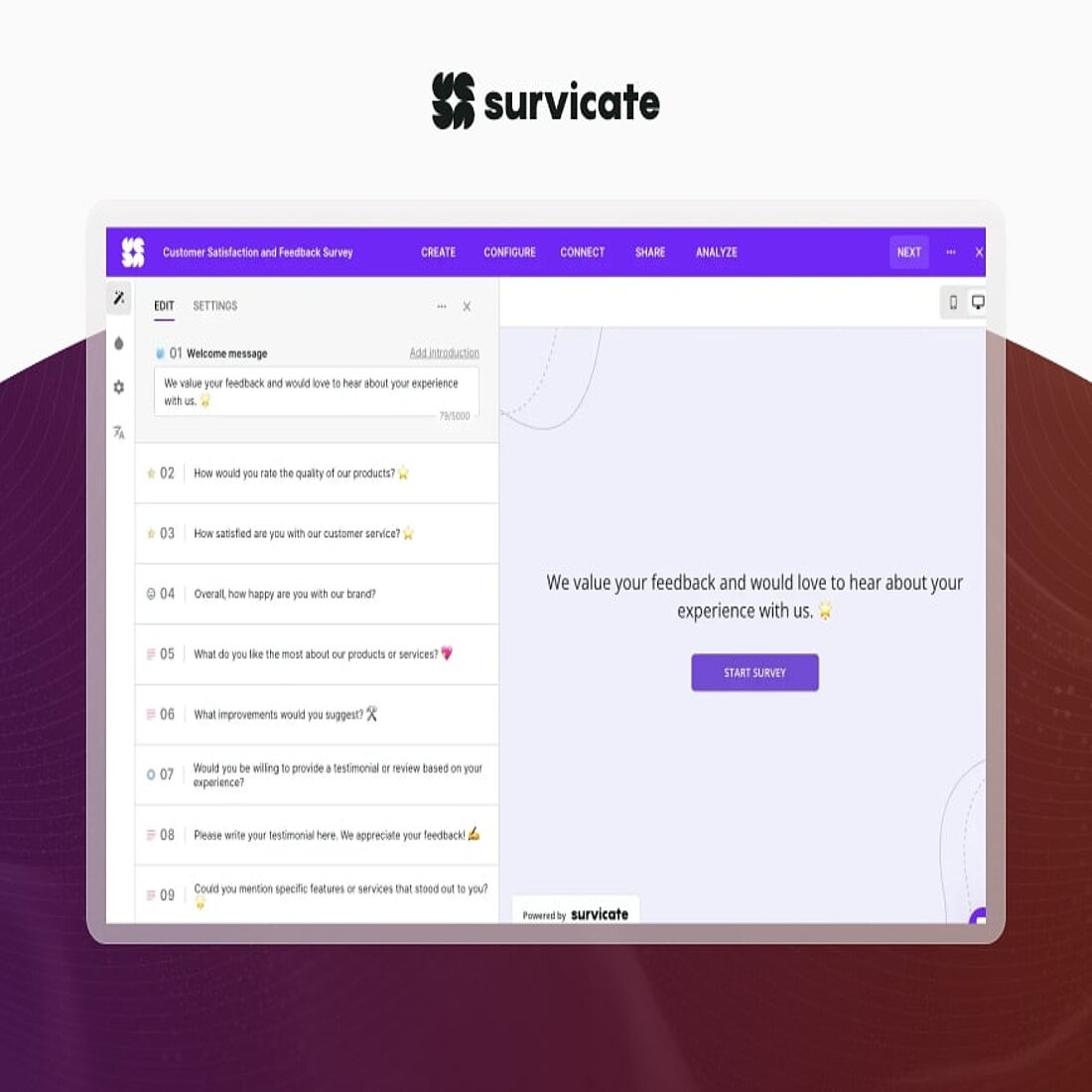
3. Survicate
Survicate is a GDPR compliant survey platform that allows businesses to create engaging surveys and polls across effective digital channels like email, websites, mobile apps, and in-product experiences.
With tools such as NPS, CSAT, and CES, plus over 200 customizable templates, it streamlines the process of gathering actionable customer insights and integrates with tools like HubSpot and Google Analytics.
Free Trial: 10-day free trial of the Best plan, allowing up to 25 survey responses.
Free Forever Plan: Yes, includes up to 25 responses per month, with a total limit of 300 responses per survey and 1,000 responses per organization across multiple surveys.
Pricing: Paid plans start at $89/month (billed annually) or $99/month (billed monthly).
Easy to integrate survey solution
- Patrick, Development Team Lead in Germany, Capterra reviewPros: It was fairly easy to setup for us and integrates well with our website, as well as our other infrastructure (pushing survey results to e.g. Slack or Big Query). It offers us good customization and the ability for marketing or non-technical product people to leverage it. The Survicate AI functionality is also very useful to do product research if you have collected a lot of feedback and want to go through it fast.
Cons: We did not see an ability to use emails and in-app surveys together while not over-surveying individual users (for example reach out to all users which did not answer an in-app survey via email).
Security and Compliance
Survicate is committed to security and compliance, providing GDPR survey software tools to collect feedback responsibly. It employs data encryption and anonymization to protect user information and meets global data privacy regulations. By enabling businesses to gather insights securely, Survicate ensures trust and adherence to legal standards in every interaction.
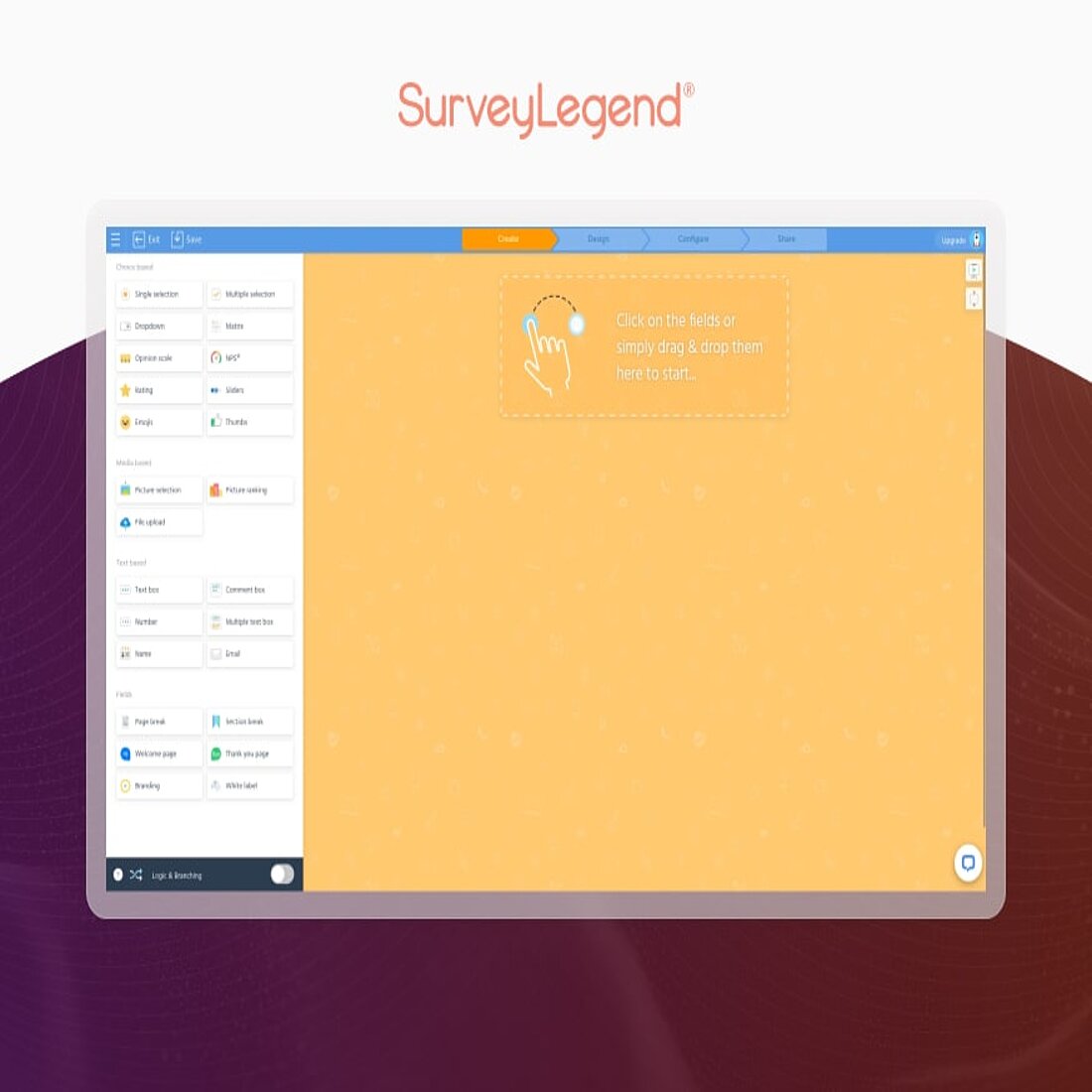
4. SurveyLegend
SurveyLegend is a GDPR survey platform for creating visually engaging surveys and polls. It offers a drag-and-drop interface, customizable themes, advanced question logic, multimedia support, and real-time analytics, ensuring secure feedback collection while maintaining data privacy.
Free Trial: No.
Free Forever Plan: Yes, the Starter plan includes up to 3 surveys with unlimited questions and up to 1,000 responses per survey.
Pricing: Paid plans start at $19/month (Pro plan) for 20 surveys with unlimited questions and up to 5,000 responses per survey. Annual billing offers a 25% discount.
Survey Legend Review
- Ian, Marketing in US, Capterra reviewPros: Real-Time Analytics and Reporting: SurveyLegend provides robust real-time analytics and reporting tools. The ability to see responses as they come in and access detailed reports with visualizations makes it easier to analyze data and extract meaningful insights quickly.
Cons: While SurveyLegend offers a free plan, it is quite limited in terms of features and functionality. Advanced features and more comprehensive customization options are locked behind the paid tiers, which may be a drawback for users with tight budgets or those wanting to fully explore the platform before committing financially.
Security and Compliance
SurveyLegend prioritizes security and compliance by adhering to GDPR survey questions standards and offering specific measures to safeguard data.
It uses AES-256 encryption for secure data storage and transmission, while its customizable consent forms allow businesses to meet specific regional privacy requirements.
Data backups are performed regularly, ensuring both reliability and compliance, making this GDPR survey platform a trusted choice for secure feedback collection.
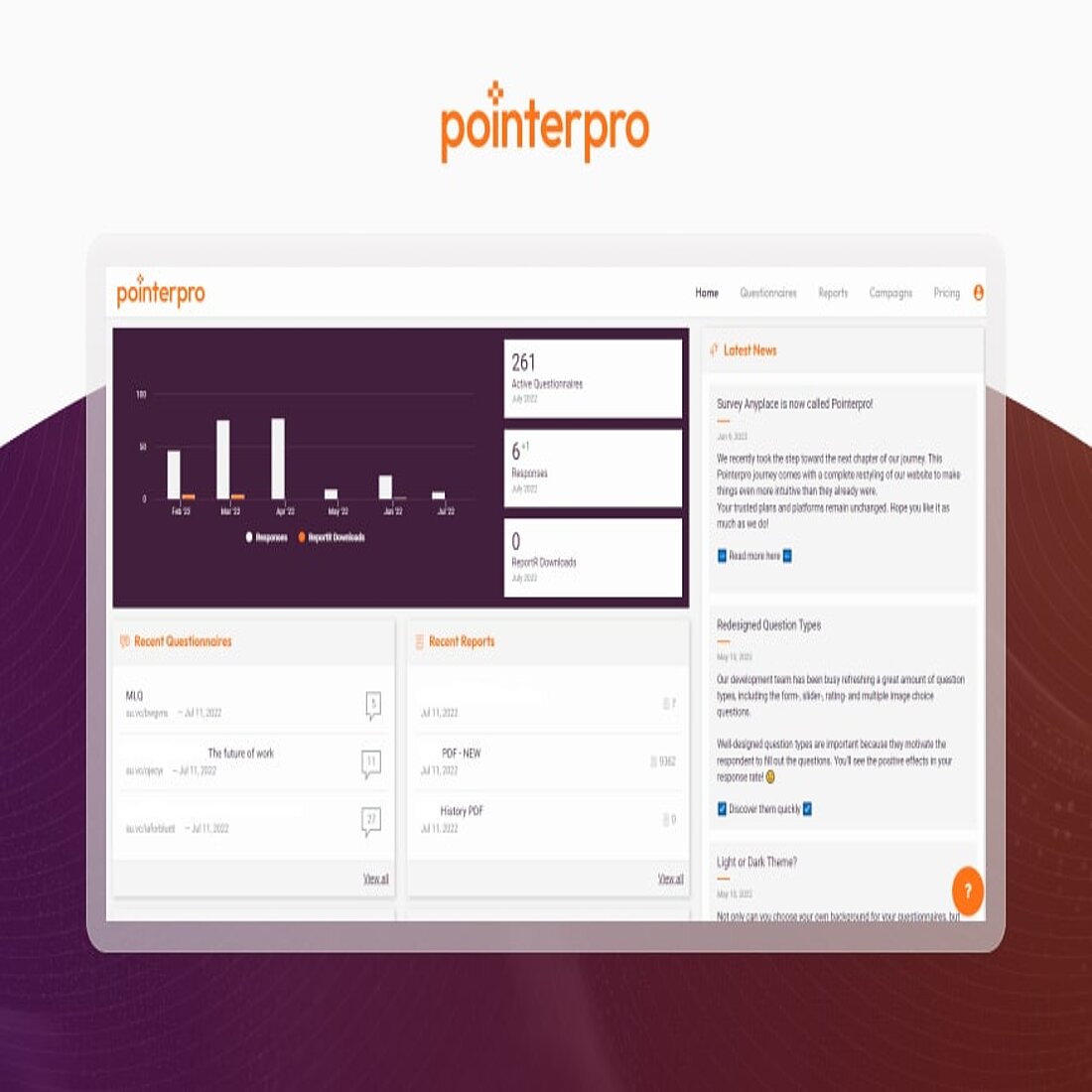
5. Pointerpro
Pointerpro is a GDPR compliant survey platform designed for creating interactive surveys and assessments, complete with the ability to generate personalized PDF reports for each respondent.
With features like a drag-and-drop editor, customizable templates, advanced question logic, and real-time analytics, it ensures secure feedback collection. Seamless integrations further enhance its usability while prioritizing data privacy.
Free Trial: 7-day free trial of the Professional plan
Free Forever Plan: No.
Pricing: Paid plans start at $69 per month (Professional plan) with 2,000 monthly responses.
Well Done Guys
- Riaan, Director in UK, Capterra reviewPros: Just to mention a few, Flexibility of questionnaire and layout, Integration options, Reporting, Delivering of assessments....... I can go on and on..........We started using this software five years ago and never looked back. It is by far the most user-friendly software, and if I ever need help with something, there is always someone to help.
Cons: Overall, I am delighted with Pointerpro. If I am to pick something, it would be the ability to have a timer built within the questionnaire eliminating the need to build stand-alone modules for our timed assessments within the assessment suites.
Security and Compliance
Pointerpro places a strong emphasis on security and survey software GDPR compliance, ensuring all feedback collected aligns with legal requirements.
It employs SSL encryption for secure data transfer and offers features like automated data purging to maintain privacy standards.
Stored data is hosted in ISO 27001-certified data centers within the EU, providing peace of mind for organizations managing sensitive respondent information.

6. SurveySparrow
SurveySparrow is a GDPR survey platform that transforms surveys and polls into interactive, conversational experiences to boost response rates.
It features a user-friendly drag-and-drop interface, logic branching, real-time analytics, and seamless integrations with over 1,500 apps.
Designed with data privacy in mind, SurveySparrow ensures secure and efficient feedback collection while delivering actionable insights.
Free Trial: 14-day free trial, with no credit card required.
Free Forever Plan: Yes, the Free plan includes 50 responses per month, 3 active surveys, and up to 10 questions per survey.
Pricing: Paid plans start at $19 per month (billed annually) for the Basic plan, which includes 2,500 responses per year and 1 user.
Nice tool for short surveys
- Verified Reviewer, Capterra reviewPros: Compared to TypeForm, SurveySparrow was faster for large survey with multiple logic leaps, the UI did not have the bugs I became accustomed to in TypeForm and SurveySparrow had good optionality for a technical survey (the number field accepts decimals, which TypeForm does not; matrix-type questions have a reasonable amount fo flexibility).
Cons: Unfortunately, we ended up not selecting it. We had difficulties copying groups of questions and entire logic branches (which we need to be able to do), so building a large, complex survey would have been too labor intensive. Maybe it is possible, but I could not find an easy way to do it and was working against a deadline.
Security and Compliance
SurveySparrow combines compliance with a user-centric approach, ensuring all collected feedback meets GDPR standards. It provides secure data encryption (AES-256), customizable consent forms, and tools for automated data deletion to simplify privacy compliance.
Data is stored on ISO 27001-certified servers, with routine backups and multi-factor authentication to prevent unauthorized access.
Additionally, SurveySparrow includes real-time audit logs, offering businesses transparency in tracking all data-related activities, ensuring robust adherence to privacy regulations.
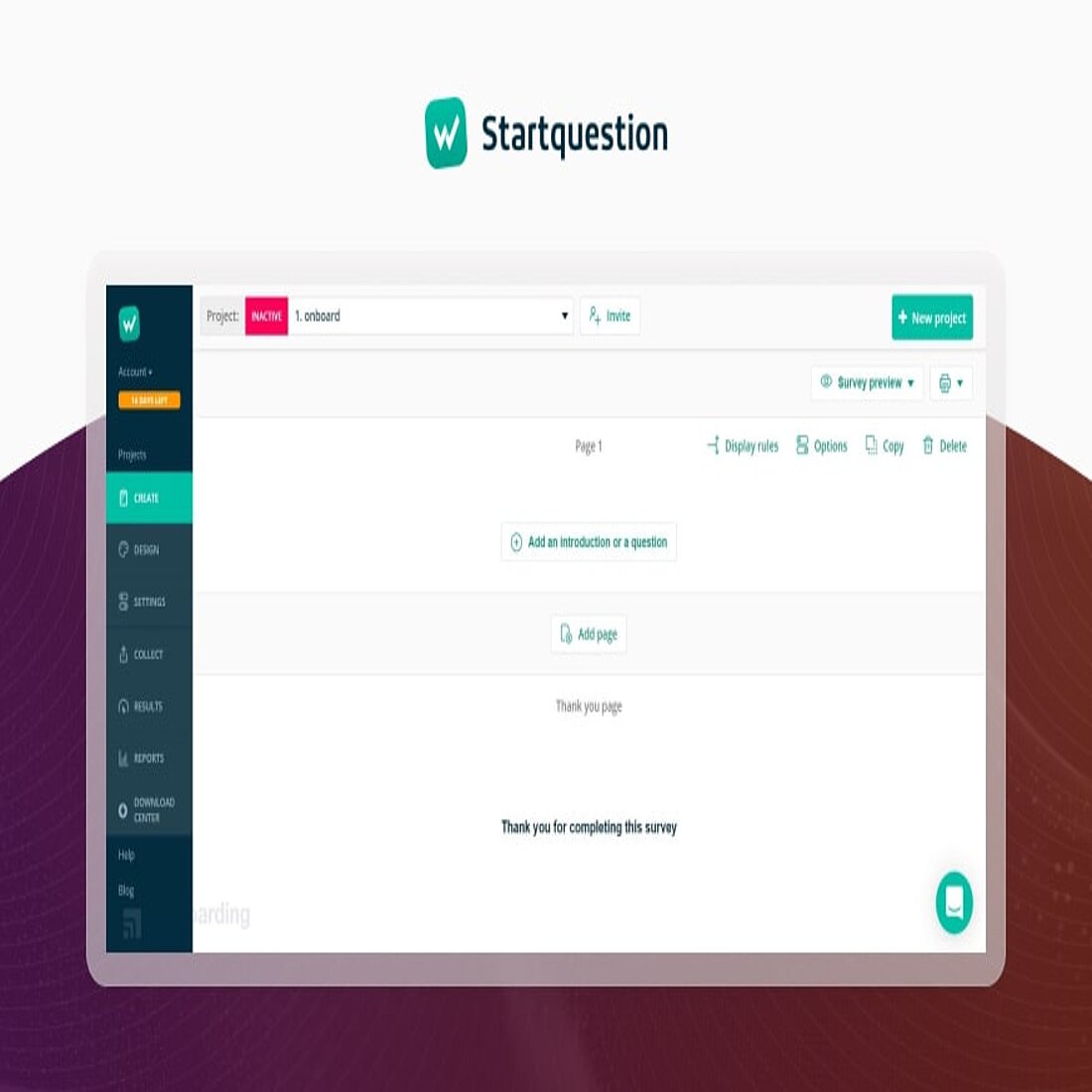
7. Startquestion
Startquestion is a GDPR-compliant platform that enables the creation of online surveys and forms. It offers a variety of question types, including multiple-choice, matrix, and open-ended questions, allowing for diverse and customized feedback collection.
The platform provides features such as logic branching, customizable templates, and real-time analytics to enhance the survey experience. Startquestion also ensures data security and compliance with GDPR standards, making it a reliable choice for organizations seeking to gather insights while maintaining data privacy.
Free Trial: 14-day free trial, allowing access to all functionalities with a limit of 20 responses per survey.
Free Forever Plan: No.
Pricing: Paid plans start at $79 per month (Start plan) for 1,000 responses per month and 1 team seat.
An application that will make your work easier
-Jakub, Business Trainer in Poland, Capterra reviewPros: The application facilitates work, has many options and possibilities both in terms of surveys and quizzes. You can create your own templates, measure NPS satisfaction. It is simple and intuitive. A great option related to reports. You can also send the survey in the form of a QR Code. Ease of copying data from previous surveys when creating a new, similar one.
Cons: Old entries could be automatically transferred, e.g. after 6M, to the archive.
Security and Compliance
Startquestion takes a proactive approach to security and compliance, fully adhering to GDPR standards for feedback collection. It uses SSL and TLS protocols for encrypted data transfer and stores information on ISO 27001-certified servers.
The platform also features customizable data retention policies and offers users the ability to anonymize responses, ensuring privacy at every step. This GDPR survey platform's tools for consent management and compliance audits make it a reliable option for businesses prioritizing data security and trust.
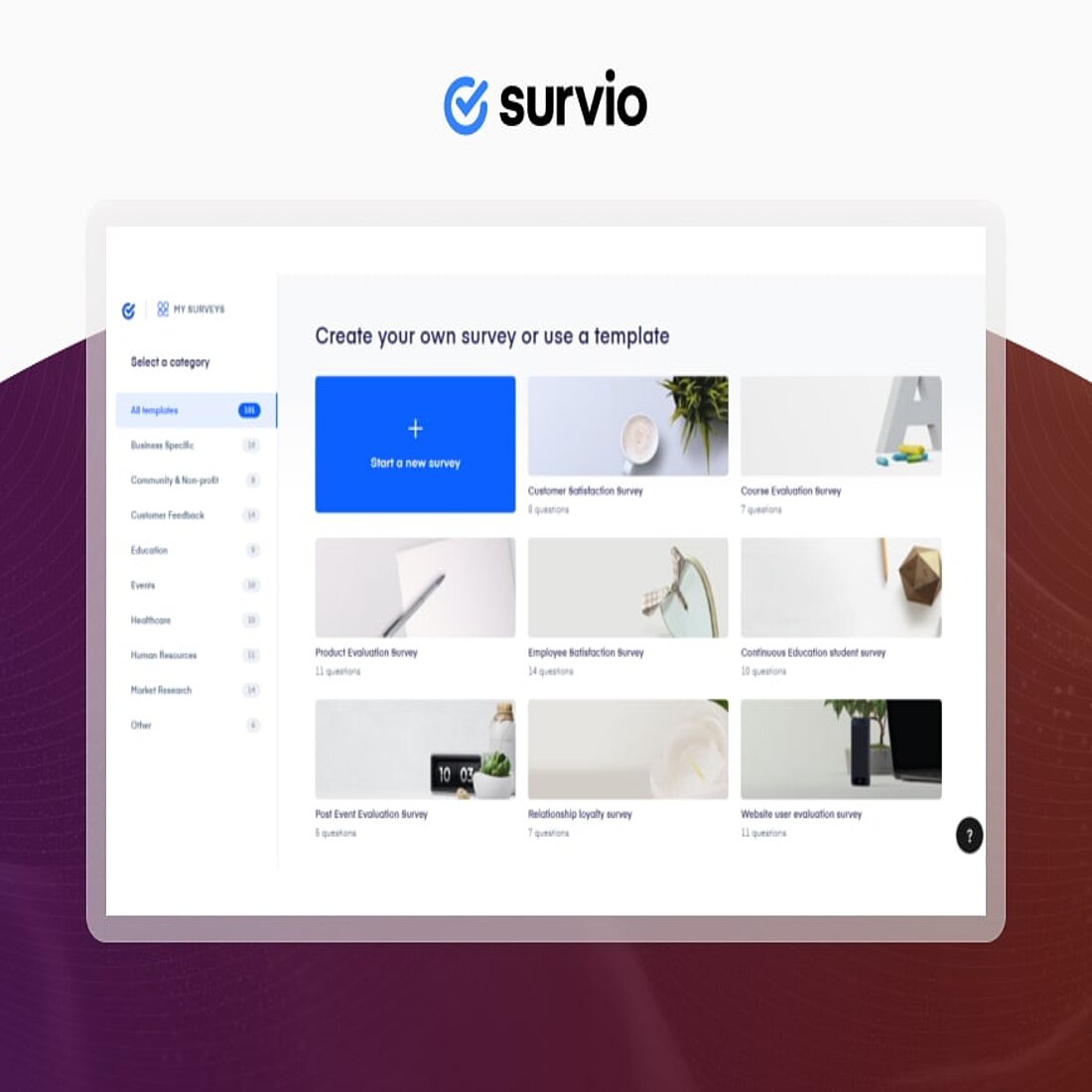
8. Survio
Survio is a GDPR readiness survey survey platform that simplifies feedback collection with over 100 customizable templates, 17 question types, and mobile-ready designs.
It ensures data privacy with 2048-bit SSL encryption and offers real-time analytics and export options, making it a secure and versatile tool for gathering insights.
Free Trial: Yes, a 14-day free trial of the PRO Business plan is available, providing access to all features without limitations.
Free Forever Plan: Yes, the Free plan includes up to 100 responses per month, unlimited surveys and questions, and access to 19 question types.
Pricing: Paid plans start at $17/month (billed annually) for 2,400 responses per year, with the Standard plan at $33/month for 6,000 responses and the PRO Business plan at $77/month for 24,000 responses.
Survio's probably the easiest to use survey maker out there
- Deniz Nur, IT Specialist in Turkey, Capterra reviewPros: I love the drag and drop builder. It works very smoothly and looks very easy on the eye. I think it makes it much easier to use, especially for non-technical personnel. I also like all the native integrations they have available. It was a good surprise to not have to use API to connect it to our other tools
Cons: The embedded surveys are far from 100% stable. We've seen instances where the survey would take forever to load or the buttons wouldn't load at all
Security and Compliance
Survio emphasizes GDPR compliance and data security by employing AES-256 encryption and SSL protocols to ensure secure data transfer and storage. Data is hosted on ISO 27001-certified servers located in the EU, providing maximum protection against breaches.
The platform performs daily automated backups to prevent data loss and enables users to anonymize or delete responses as needed. Survio also provides detailed consent form templates that can be customized to meet regional legal requirements, ensuring businesses adhere to strict privacy laws while responsibly collecting feedback.
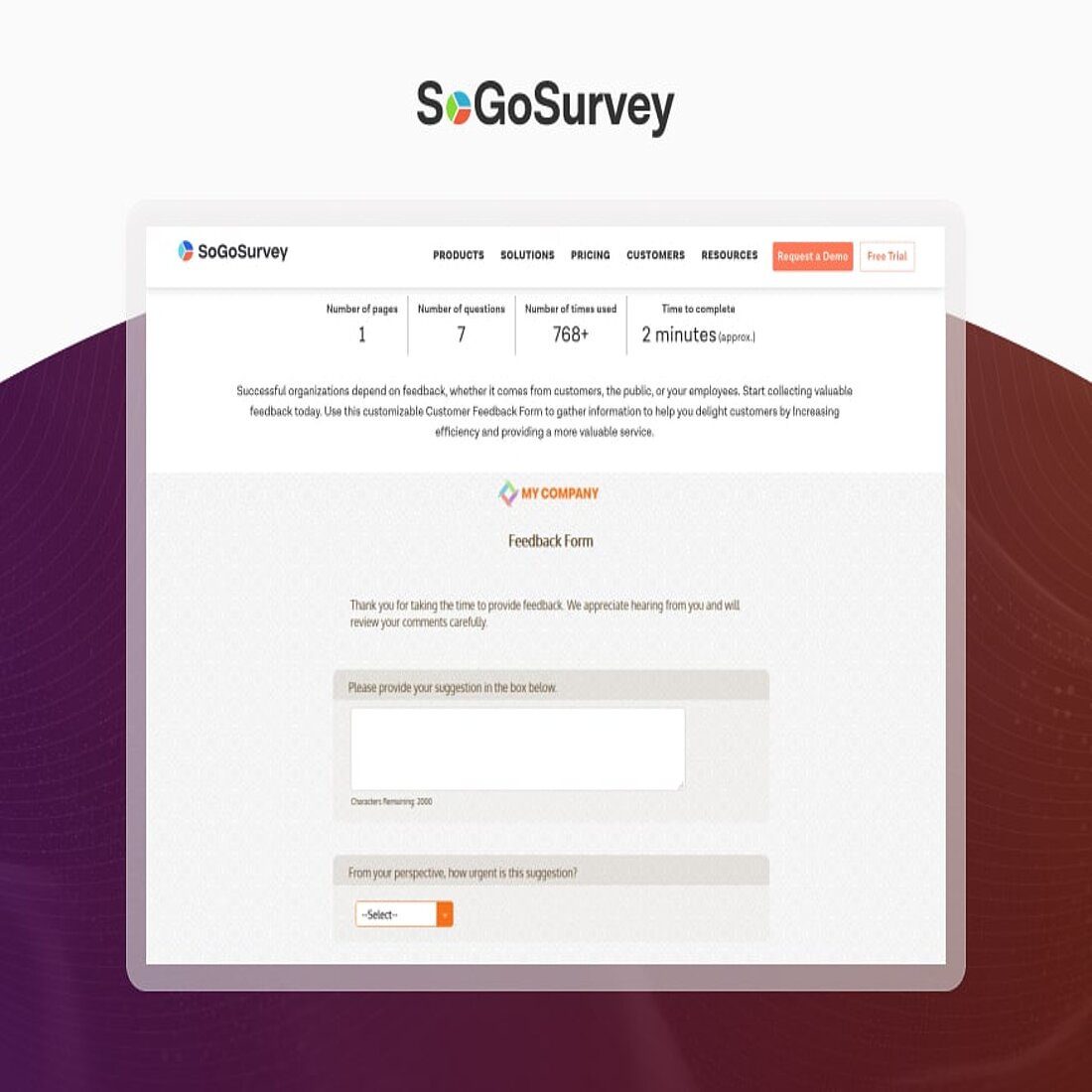
9. SoGoSurvey
SoGoSurvey is a GDPR survey platform designed for creating professional surveys and polls with ease. It features an intuitive drag-and-drop interface, customizable templates, advanced question logic, and real-time analytics.
With seamless integrations to tools like Salesforce and Zapier, SoGoSurvey ensures efficient feedback collection while prioritizing data security and GDPR compliance.
Free Trial: Yes, a 10-day free trial is available for Plus, Pro, and Premium plans, allowing up to 100 responses.
Free Forever Plan: Yes, the Basic plan includes unlimited surveys with up to 200 responses per year.
Pricing: Paid plans start at $25/month (billed annually) for the Plus plan, with higher-tier plans at $66/month (Pro) and $99/month (Premium).
An essential tool for data management and analysis of my company
- Luz Mary, Teacher in US, Capterra reviewPros: What impressed me most about this platform was its level of sophistication and ease of use. From creating and distributing questionnaires to analyzing and presenting data, everything was done smoothly and efficiently.
Cons: Some of the more advanced analyzes require a deeper level of technical knowledge. While the interface is easy to use for most functions, in certain cases I found myself searching for more guidance or documentation to fully understand how to get the most out of certain features and more advanced analytics.
Security and Compliance
SoGoSurvey prioritizes security and compliance by adhering to GDPR and other global privacy standards. It uses enterprise-grade encryption (AES-256) to secure data during transmission and storage.
Data is hosted in ISO 27001-certified data centers, and the platform provides features such as automated response anonymization, customizable retention policies, and detailed compliance reports.
Additionally, SoGoSurvey supports customizable consent forms to meet regional legal requirements and provides real-time monitoring for enhanced security, making it a trusted choice for secure feedback management.
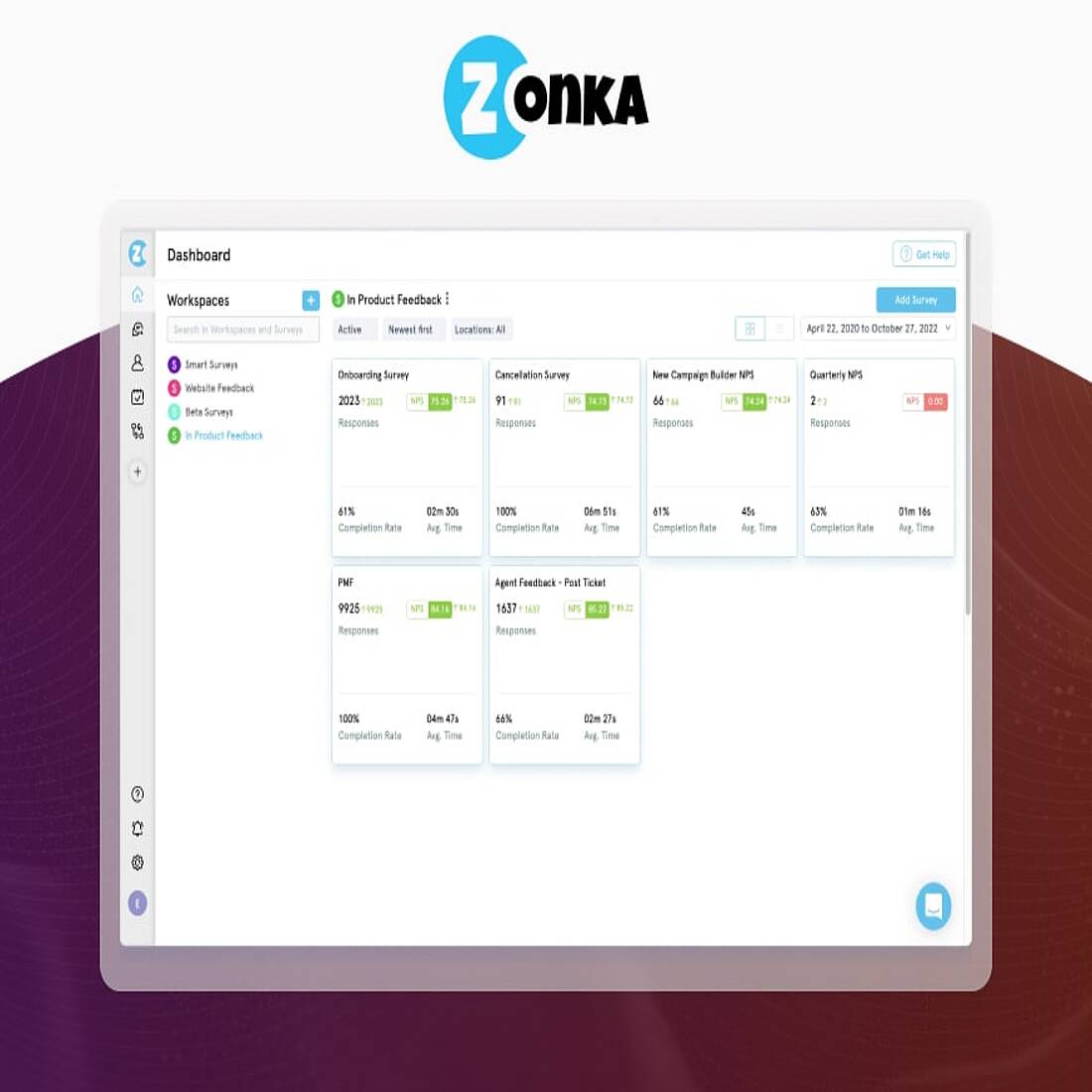
10. Zonka Feedback
Zonka Feedback is a GDPR-compliant platform designed to simplify the creation of surveys and polls. With its user-friendly drag-and-drop interface, customizable templates, and advanced question logic, it streamlines feedback collection.
The platform also provides real-time analytics and integrates with tools like Salesforce and Zapier, all while ensuring data privacy compliance.
Free Trial: Yes, a 14-day free trial is available, providing access to all features without requiring a credit card.
Free Forever Plan: Yes, the Free plan includes unlimited surveys and questions, with up to 1 user and 100 responses per month.
Pricing: Paid plans start at $49/month (billed annually) for the Starter plan, which includes 3 users and additional features such as survey branding removal and multilingual surveys.
Robust features for collecting feedback
- Stephan, Manager in Grenada, Capterra reviewPros: Zonka feedback is definitely not your everyday feedback collection tool. It has lots of robust features, the platform itself is very intuitive and offers great value for the price. What i love: - Conditional logic & automations - You can import contacts you already have to send surveys to - Create tags for responses, enabling to filter those responses - Add tasks and create custom alerts to follow up with certain responses - Shopify and other premium integrations to import / export you leads / contacts - Exciting features to come outlined in their roadmap
Cons: There are a couple of things that i think could be improved such as the overall survey design layout, more font options and a preview mode for mobile, tablet and desktop while editing. Also, some video tutorials will help to get through and understand more in-depth the features offered.
Security and Compliance
Zonka Feedback ensures strict security and compliance measures, fully aligning with GDPR and other global privacy regulations. It uses industry-standard AES-256 encryption for data storage and SSL protocols for secure transmission. Data is hosted in highly secure, ISO 27001-certified data centers, ensuring robust protection against breaches.
This GDPR survey platform also offers automated tools for response anonymization, customizable consent forms, and data retention policies, enabling businesses to manage compliance effectively. Regular security audits and real-time monitoring further enhance its reliability, making it a trusted platform for secure feedback collection.
Share article
Get Started for Free
Gain World-Class Insights & Offer Innovative Privacy & Security

You might also like
Data Management Strategy: Steps + Insights from Aleksejs Plotnikovs 08 January 2025 - by Simon Coulthard
08 January 2025 - by Simon Coulthard
The Complete Guide to Getting the Fundamentals of Your Website Right 12 April 2023 - by Simon Coulthard
12 April 2023 - by Simon Coulthard











